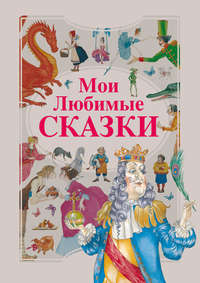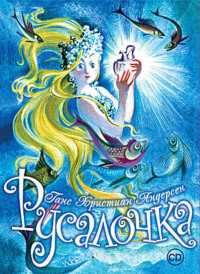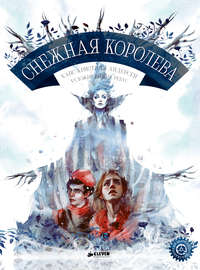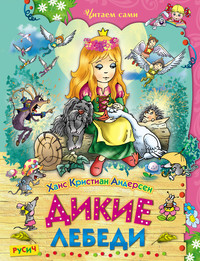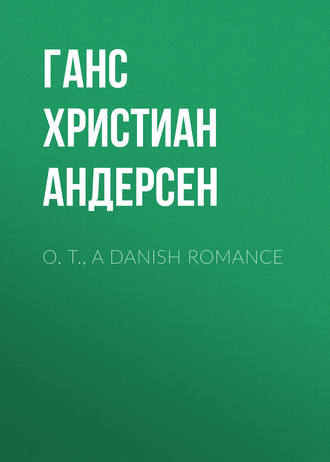 полная версия
полная версияO. T., A Danish Romance
“Thostrup will have the red room, will he not?” said Wilhelm, and the friends ascended the stairs together.
A pale young girl, not free from freckles, but with eyes full of soul, hastened toward them; this was Wilhelm’s youngest sister. She pressed her brother to her breast, and took Otto’s hand with kindness. She is not beautiful! was the first impression she made upon him. His chamber was vaulted, and the walls painted in the style of Gobelin tapestry; they represented the whole of Olympus. On the left was an old fire-place, with decorations and a gilt inscription; on the right stood an antiquated canopy-bed, with red damask hangings. The view was confined to the moat and the interior court. But a few minutes and Otto and Wilhelm were summoned to table. A long gallery through two wings of the hall, on one side windows, on the other entrances to the rooms, led to the dining-room. The whole long passage was a picture-gallery. Portraits the size of life, representing noble knights and ladies shining forth in red powdered periwigs, children adorned like their elders, with tulips in their hands, and great hounds by their sides, together with some historical pieces, decorated the walls.
“Have we no garland on the table?” asked Sophie, as she entered the dining-room with the others.
“Only a weak attempt to imitate my sister!” said Louise, smiling.
“But there is not a single flower in the garland! What economy! And yet it is sweet!”
“How tasteful!” exclaimed Otto, examining the garland which Louise had laid.
All kinds of green leaves, with their innumerable shades, a few yellow linden-leaves, and some from the copper-beech, formed, through their varied forms and colors, a tasteful garland upon the white table-cloth.
“You receive a thistle and a withered leaf!” whispered Wilhelm, as Otto seated himself.
“But yet the most beautiful!” answered he. “The copper beech contrasts so sweetly with the whitish-green thistle and the yellow leaf.”
“My sister Sophie,” said Louise, “lays us each day a different garland;—it is such a pretty decoration! If she is not here we get none; that would have been the case to-day, but when I learned that Wilhelm was coming, and that we,” she added, with a friendly glance, “should have two other guests, I in great haste, made an attempt, and”—
“And wished to show how nicely it could be made without robbing your flowers!” interrupted Sophie, laughing. “In reality, I am very cruel! I cut all the heads of her favorites off. To-morrow, as a parody upon her garland of to-day, will I make one of green cabbage and pea-shells!”
“Madeira or port wine?” asked the Kammerjunker, and led the conversation from flowers to articles of food and drink.
“One feels one’s self comfortable here at the hall! Miss Louise cares for the body, and Miss Sophie for the soul!”
“And mamma bestows a good cup of coffee,” said the mother; “you must also praise me a little!”
“I give music after dinner!” cried Wilhelm; “and thus the whole family will have shown their activity!”
“But no voluntaries!” said the Kammerjunker; “no voluntaries, dear friend! No, a brisk song, so that one can hear what it is! but none of your artificial things!” A right proper blow on the shoulders was intended to soften his expression.
CHAPTER IX
“She sees if the cloth is clean and white—If the bed has pillows and sheets;If the candle fits in the candlestick....“Modest she is, although you knowShe makes the whole of the place;And in she slips in the evening glow,To light the room with her merry face “—OEHLENSCHLÄGERA quiet, busy house-fairy was Louise; the beautiful, fragrant flowers were her favorites. Good-humoredly she smiled at the raillery of her sister, quietly listened to each thoughtless jest; but if any one, in joke, touched upon what was holy to her soul, she was aroused from her calmness and attained a certain eloquence.
We will now become more nearly acquainted with the sisters, and on this account pass over to one of the following days.
An abode together of a week, at a country-seat, will often bring about a greater intimacy than if, throughout a whole winter, people had met in large companies in cities. Otto soon felt himself at home; he was treated as a near relative. Wilhelm related all he knew of the beautiful Eva, and Sophie discovered that she was a romantic character. Mamma pitied the poor child, and Louise wished she had her on the estate: an inn was, after all, no proper place for a respectable girl. They then spoke of the winter enjoyments in Copenhagen, of art, and the theatre. Louise could not speak much with them upon these subjects, although she had seen one play, “Dyveke:” the amiable nature of the actress had spoken deeply to her heart.
Several days had passed; the sky was gray; the young people assembled round the table; they were at no loss for a subject of conversation. All those who have brothers or sons who study well, have remarked how much they are especially fascinated by the lectures on natural philosophy and astronomy; the world, as it were, expands itself before the intellectual eye. We know that the friends, during the past summer, had participated in these lectures, and, like the greater number, were full of these subjects, from the contemplation of a drop of water, with its innumerable animalculae, to the distance and magnitude of stars and planets.
To most of us these are well-known doctrines; to the ladies, also, this was nothing entirely new: nevertheless, it interested them; perhaps partly owing to Otto’s beautiful eloquence. The gray, rainy weather led the conversation to the physical explanation of the origin of our globe, as the friends, from Orsted’s lectures, conceived it to have been.
“The Northern and Grecian myths agree also with it!” sail Otto. “We must imagine, that in infinite space there floated an eternal, unending mist, in which lay a power of attraction. The mist condensed itself now to one drop—our globe was one enormous egg-shaped drop; light and warmth operated upon this huge world egg, and hatched, not alone ONE creature, but millions. These must die and give way to new ones, but their corpses fell as dust to the centre: this grew; the water itself condensed, and soon arose a point above the expanse of ocean. The warmth of the sun developed moss and plants; fresh islands presented themselves; for centuries did a more powerful development and improvement show themselves, until the perfection was attained which we now perceive!”
“But the Bible does not teach us thus!” said Louise.
“Moses invented his account of the creation,” answered Otto; “we keep to Nature, who has greater revelations than man.”
“But the Bible is to you a holy book?” asked Louise, and colored.
“A venerable book!” returned Otto. “It contains the profoundest doctrines, the most interesting histories, but also much which belongs not at all to a holy book.”
“How can you say such things?” exclaimed Louise.
“Do not touch upon religion in her presence,” said Sophie; “she is a pious soul, and believes, without desiring to know wherefore.”
“Yes,” said Wilhelm, “this winter she became quite angry, and, as I believe, for the first time angry with me, because I maintained that Christ was a man.”
“Wilhelm!” interrupted the young girl, “do not speak of that; I feel myself unhappy at this thought; I can and will not see the Holy brought down to my level, and to that of every-day life. It lies in my nature that I commit a sin if I think otherwise than I have learned and than my heart allows me. It is profane, and if you speak longer of religion in this strain I shall leave the room.”
At this moment the mother entered. “The festival has commenced,” said she; “I have been forced to give my brightest silver skilling. Does Mr. Thostrup know the old custom which is observed here in the country, when beer is brewed for the mowing-feast?”
A piercing cry, as from a horde of savages, at this moment reached the ears of the party.
The friends descended.
In the middle of the brew-house stood a tub, around which danced all the female servants of the estate, from the dairymaids down to the girl who tended the swine; their iron-bound wooden shoes dashed against the uneven flag-stones. The greater number of the dancers were without their jackets, but with their long chemise-sleeves and narrow bodices. Some screamed, others laughed, the whole was blended together in a howl, whilst they danced hand in hand around the tub in which the beer should be brewed. The brewing-maid now flung into it the silver skilling, upon which the girls, like wild Maenades, tore off each other’s caps, and with bacchanalian wildness whirled round the tub. By this means should the beer become stronger, and work more intoxicatingly at the approaching mowing-feast.
Among the girls, one especially distinguished herself by her Strong frame of body, and her long black hair, which, now that her cap was torn off, hung in disorder over her red face. The dark eyebrows were grown together. All seemed to rage most violently within her, and in truth she assumed something wild, nay almost brutal. Both arms she raised high in the air, and with outstretched fingers she whirled around.
“That is disgusting!” whispered Otto: “they all look like crazy people.”
Wilhelm laughed at it. The wild merriment was lost in a joyous burst of laughter. The girl with the grown-together eyebrows let fall her arms; but still there lay in her glance that wild expression, which the loose hair and uncovered shoulders made still more striking. Either one of the others had had the misfortune to scratch her lip, or else she herself had bitten it in bacchanalian wildness until it bled: she accidentally glanced toward the open door where stood the friends. Otto’s countenance became clouded, as was ever the case when anything unpleasant affected him. She seemed to guess his thoughts, and laughed aloud. Otto stepped aside; it was as though he in anticipation felt the shadow which this form would one day cast across his life.
When he and Wilhelm immediately afterward returned to Sophie and Louise, he related the unpleasant impression which the girl had made upon him.
“O, that is my Meg Merrilies!” exclaimed Sophie. “Yes, spite of her youth, do you not find that she has something of Sir Walter Scott’s witch about her? When she grows older, she will be excellent. She has the appearance of being thirty, whereas she is said not to be more than twenty years old: she is a true giantess.”
“The poor thing!” said Louise; “every one judges from the exterior. All who are around her hate her, I believe, because her eyebrows are grown together, and that is said to be a sign that she is a nightmare:3
they are angry with her, and how could one expect, from the class to which she belongs, that she should return scorn with kindness? She is become savage, that she may not feel their neglect. In a few days, when we have the mowing-feast, you yourself will see how every girl gets a partner; but poor Sidsel may adorn herself as much as she likes, she still stands alone. It is truly hard to be born such a being!”
“The unfortunate girl!” sighed Otto.
“O, she does not feel it!” said Wilhelm: “she cannot feel it; for that she is too rude, too much of an animal.”
CHAPTER X
“Were the pease not tender, and the vegetables fresh and sweet as sugar What was the matter with the hams, the smoked goose-breasts, and the herrings? What with the roasted lamb, and the refreshing red-sprinkled head-lettuce? Was not the vinegar sharp, and the nut-oil balmy? Was not the butter as sweet as a nut, the red radishes tender? What?”—VOSS’S Louise.
“Mr. Thostrup shall see the Kammerjunker’s old country-seat; to-morrow we must go over.”
Louise could not go with them, a hundred small duties chained her to the house. The most important of them all was ironing.
“But that the house-maid can do,” said Sophie. “Do come with us.”
“When thou seest thy linen nice and neat in thy drawers,” returned Louise, “thou wilt certainly pardon me for remaining at home.”
“Yes, thou art a glorious girl!” said Sophie; “thou dost deserve to have been known by Jean Paul, and made immortal in one of his books. Thou dost deserve the good fortune of being sung of by such a poet.”
“Dost thou call it good fortune,” answered the sister, “when the whole world directs its attention to one person?—that must be painful! unhappy! No, it is much better not to be remarked at all. Take my greetings with you, and ask for my Claudius back; they have had it now a whole half year.”
“There, they have kept half my sister’s library,” said Sophie, smiling to Otto. “You must know she has only two books: Mynster’s Sermons, and the ‘Wandsbecker Boten.’”
The carriage rolled away through the chestnut avenue. “There upon the hill, close by the wood, did I act the elf-maiden,” said Sophie. “I was not yet confirmed; there were strangers staying with us at the hall, and we wandered in the beautiful moonlight through the wood. Two of my friends and I hastened toward the hill, took hold of each other’s hands and danced in a ring. The day after, two persons of the congregation told the preacher about three elfin-maidens, clad in white, who had danced upon the hill in the moonlight. The elfin-maidens were we; but that our backs were hollow as baking-troughs, and that the hill glanced like silver, was their own invention.”
“And in this oak,” exclaimed Wilhelm, “when a boy, I killed the first bird which fell from my shot. It was a crow, and was very honorably interred.”
“Yes, beneath my sister’s weeping-willow,” said Sophie. “We buried it in an old chapeaubras, adorned with white bows; the grave was decorated with peony-leaves and yellow lilies. Wilhelm, who was then a big boy, made an oration, and Louise strewed flowers.”
“You were little fools!” said the mother. “But see, who comes here?”
“O, my little Dickie, my dwarf of Kenilworth!” exclaimed Sophie, as a little hump-backed man, with thin legs and an old face, approached. He was dressed as a peasant, and bore upon his back a little knapsack of red calfskin, the hairy side turned outward: in this he carried his violin.
“Is he called Dickie?” asked Otto.
“No, that is only a joke of Sophie’s,” pursued Wilhelm; “she must always make suitable people romantic. He is called commonly ‘Musikanti.’ The inhabitant of Funen Italianizes most names; otherwise he is called Peter Cripple.”
“You will hear his tones,” said Sophie. “The day after to-morrow, when we have the mowing-feast, he will he number one. He understands music with which you are scarcely acquainted; he will play you the ‘Shoemaker’s Dance’ as well as ‘Cherry-soup:’ such dances as these have people here in the country.”
“We are now beyond my lands, and upon our neighbor’s,” said the old lady. “You will see a thorough old mansion.”
“Now, I should like to know how the inhabitants will please Mr. Thostrup,” said Sophie. “The Kammerjunker you know; he is an excellent country gentleman. His sister, on the contrary, is a little peculiar: she belongs to that class of people who always, even wily the best intentions, say unpleasant things. She has for this quite a rare talent—you will soon experience this; but she does not intend anything so bad. She can also joke! Thank God that you will not remain there over night, otherwise you would experience what she and the Mamsell can invent!”
“Yes, the Mamsell is my friend!” said Wilhelm. “You will see her work-box with all the curiosities. That little box plays a great part: it is always taken out with her when she pays a visit—for the sake of conversation it is brought out; all is then looked through, and every article goes the round of the company. Yes, there are beautiful things to be seen: a little wheelbarrow with a pincushion, a silver fish, and the little yard-measure of silk ribbon.”
“Yes, and the amber heart!” said Sophie; “the little Napoleon of cast iron, and the officer who is pasted fast to the bottom of the box: that is a good friend in Odense, she lately told to me in confidence.”
“See what beautiful stone fences the Kammerjunker has made!” said the mother. “And how beautifully the cherry-trees grow! He is an industrious man!”
They approached the garden. It was laid out in the old French style, with straight walks, pyramids of box, and white painted stone figures: satyrs and goddesses peeped through the green foliage. You now caught sight of a high tower with a spire; and soon the whole of the old mansion presented itself to view. The water was conveyed away from the broad moats, where the weeping willows with bowed heads and uncovered roots stood in the warm sunshine. A number of work-people were busily employed in clearing the moats of mud, which was wheeled in barrows on both sides.
They soon reached the principal court-yard. The barns and the out-buildings lay on the opposite side. A crowd of dogs rushed forth barking toward the carriage—all possible races, from the large Danish hound, which is known to the Parisian, down to the steward’s little pug-dog, which had mixed with this company. Here stood the greyhound, with his long legs, beside the turnspit. You saw all varieties, and each had its peculiar and melodious bark. A couple of peacocks, with bright outspread tails, raised at the same time a cry, which must have made an impression. The whole court-yard had a striking air of cleanliness. The grass was weeded from between the stones; all was swept and arranged in its appointed order. Before the principal flight of steps grew four large lime-trees; their tops, from youth bent together and then clipped short, formed in spring and summer two large green triumphal arches. On the right stood upon an upright beam, which was carved and formed into a pillar, a prettily painted dove-cot; and its gay inhabitants fluttered and cooed around. The peacock-pigeon emulated the peacock in spreading its tail; and the cropper-pigeon elevated itself upon its long legs, and drew itself up, as though it would welcome the strangers with the air of a grand gentleman. The reddish-brown tiles and the bright window-panes were the only things which had a modern air. The building itself, from the stone window-seats to the old-fashioned tower through which you entered, proclaimed its antiquity. In the vaulted entrance-hall stood two immense presses: the quantity of wood which formed them, and the artistical carving, testified to their great age. Above the door were fastened a couple of antlers.
The Kammerjunker’s sister, Miss Jakoba, a young lady of about thirty, neither stout nor thin, but with a strange mixture of joviality and indolence, approached them. She appeared to rejoice very much in the visit.
“Well, you are come over, then!” said she to Wilhelm. “I thought you had enough to do with your examination.”
Wilhelm smiled, and assured her that after so much study people required relaxation.
“Yes, you doubtless study in handsome boots!” said the young lady, and in a friendly manner turned toward Sophie. “Good heavens, miss!” she exclaimed, “how the sun has burnt your nose! That looks horrible! Don’t you ever wear a veil? you, who otherwise look so well!”
Otto was a stranger to her. He escaped such unpleasant remarks. “They should spend the whole day there,” insisted Miss Jakoba; but mamma spoke of being at home by noon.
“Nothing will come of that!” said Jakoba. “I have expected you; and we have cooked a dinner, and made preparations, and I will not have had all this trouble in vain. There are some especial dishes for you, and of these you shall eat.” This was all said in such a good-humored tone that even a stranger could not have felt himself offended. The Kammerjunker was in the fields looking after his flax; he would soon be back. Squire Wilhelm could in the mean time conduct Mr. Thostrup about the premises: “he would otherwise have nothing to do,” said she.
No one must remain in the sitting-room; it was so gloomy there! The walls were still, as in by-gone days, covered with black leather, upon which were impressed gold flowers. No, they should go to the hall—that had been modernized since the Baroness was last there. The old chimney-piece with carved ornaments was removed, and a pretty porcelain stove had taken its place. The walls were covered with new paper from Paris. You could there contemplate all the public buildings of that city,—Notre Dame, Saint Sulpice, and the Tuileries. Long red curtains, thrown over gilt rods, hung above the high windows. All this splendor was admired.
“I prefer the antique sitting-room, after all,” said Sophie; “the old chimney-piece and the leather hangings. One fairly lives again in the days of chivalry!”
“Yes, you have always been a little foolish!” said Jakoba, but softened her words by a smile and a pressure of the hand. “No, the hall is more lively. Ah!” she suddenly exclaimed; “Tine has placed her work-box in the window! That is disorder!”
“O, is that the celebrated work-box, with its many fool’s tricks?” inquired Wilhelm, as he laughingly took it up.
“There are neither fools nor tricks in the box,” said Jakoba. “But only look in the mirror in the lid, and then you will perhaps see one of the two.”
“No rude speeches, my young lady!” said Wilhelm; “I am an academical burgher!”
The Kammerjunker now entered, attired in the same riding dress in which we made his acquaintance. He had visited his hay and oats, had seen after the people who were working at the fences, and had been also in the plantation. It had been a warm forenoon.
“Now, Miss Sophie,” said he, “do you see how I am clearing out the court? It costs me above five hundred dollars; and still they are the peasants of the estate who clear away the mud. But I shall get a delicate manure-heap, so fit and rich that it’s quite a pleasure. But, Jakoba, where is the coffee?”
“Only let it come in through the door,” said Jakoba, somewhat angrily. “You certainly ate something before you went from home. Let me attend to the affairs of the ladies, and do thou attend to the gentlemen, so that they may not stand and get weary.”
The Kammerjunker conducted the friends up the winding stone stairs into the old tower.
“All solid and good!” said he. “We no longer build in this manner. The loop-holes here, close under the roof, were walled up already in my father’s time. But only notice this timber!”
The whole loft appeared a gigantic skeleton composed of beams, one crossing the other. On either side of the loft was a small vaulted chamber, with a brick fire-place. Probably these chambers had been used as guard-rooms; a kind of warder’s walk led from these, between the beam-palisade and the broad wall.
“Yes, here,” said the Kammerjunker, “they could have had a good lookout toward the enemy. Look through my telescope. You have here the whole country from Vissenberg to Munkebobanke, the Belt, and the heights of Svendborg. Only see! The air is clear. We see both Langeland and Zealand. Here one could, in 1807, have well observed the English fleet.”
The three climbed up the narrow ladder and came past the great clock, the leaden weights of which, had they fallen, would have dashed through the stone steps, and soon the gentlemen sat on the highest point. The Kammerjunker requested the telescope, placed it and exclaimed:—
“Did I not think so? If one has not them always under one’s eyes they begin playing pranks! Yes, I see it very well! There, now, the fellows who are working at the fences have begun to romp with the girls! they do nothing! Yes, they don’t believe that I am sitting here in the tower and looking at them!”
“Then a telescope is, after all, a dangerous weapon!” exclaimed Wilhelm. “You can look at people when they least expect it. Fortunately, our seat lies hidden behind the wood: we are, at all events, safe.”
“Yes, that it is, my friend,” returned the other; “the outer sides of the garden are still bare. Did I not, last autumn, see Miss Sophie quite distinctly, when she was gathering service-berries in her little basket? And then, what tricks did she not play? She certainly did not think that I sat here and watched tier pretty gambols!”
They quitted the tower, and passed through the so-called Knight’s Hall, where immense beams, laid one on the other, supported the roof. At either end of the hall was a huge fireplace, with armorial bearings painted above: the hall was now used as a granary; they were obliged to step over a heap of corn before reaching the family pew in the little chapel, which was no longer used for divine service.


